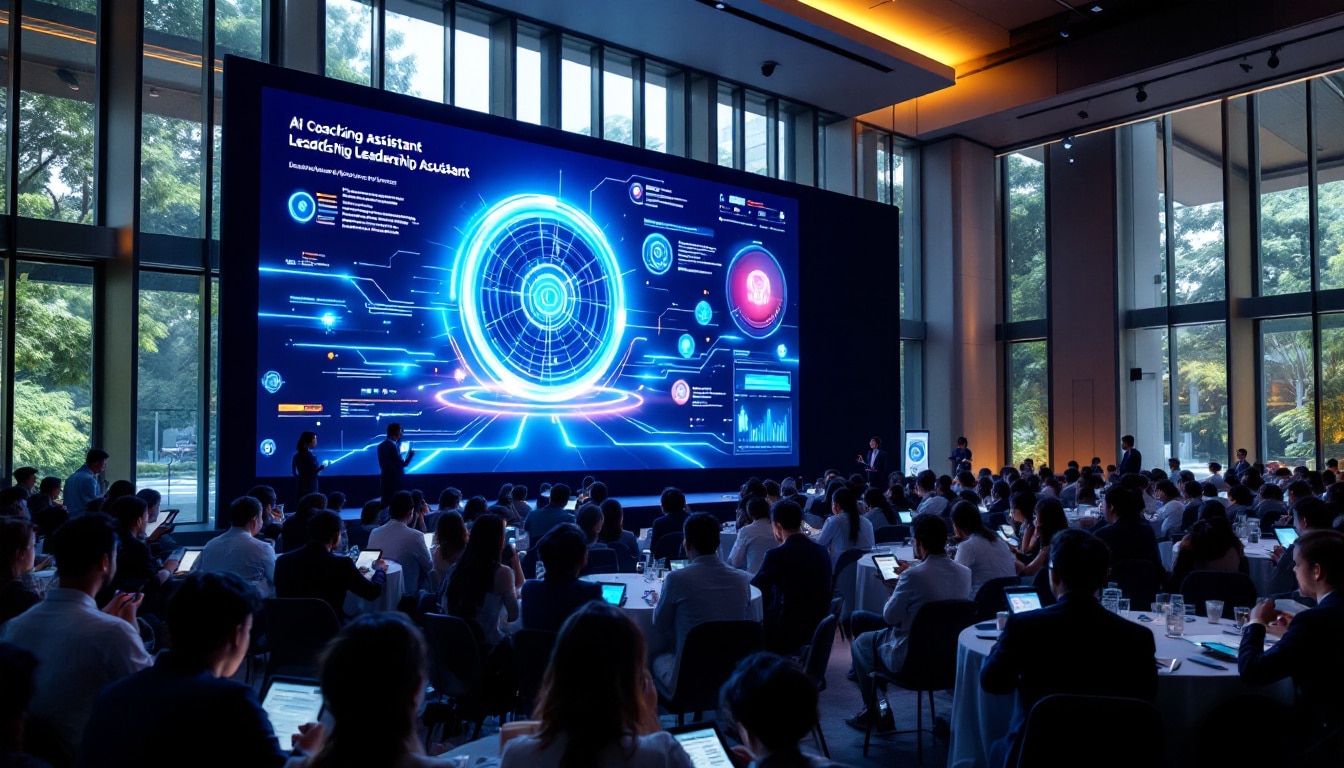“`html
Your privacy is our top priority.
We are committed to protecting your personal data.
Every interaction is designed to enhance your experience.
We use cookies and data to ensure the proper functioning of our services and to maintain optimal quality. By monitoring performance, we can quickly detect and resolve any interruptions, while protecting against spam, fraud, and abuse. Analyzing our audience’s engagement allows us to understand how our services are used and to continuously improve their quality. If you choose to accept all options, we will also use the data to develop new services and measure the effectiveness of advertisements. This way, you will benefit from personalized content and ads, tailored to your preferences and history. If you prefer to decline, we will ensure that no cookies are used for these additional purposes. You always have the option to select “More options” to get further information and manage your privacy settings at any time.
“`

The world of leadership is rapidly evolving with the integration of innovative technologies. Recently, at the prestigious Uncommon Leadership Academy event in Singapore, a revolution was announced: an AI-powered coaching assistant designed to transform how leaders are trained and develop. This new tool promises to redefine executive coaching practices by offering personalized and accessible solutions.
What is an AI-powered coaching assistant?
An AI-powered coaching assistant is an advanced technology designed to support leaders in their personal and professional development. Unlike traditional methods, this assistant uses artificial intelligence algorithms to analyze behaviors, identify strengths and areas for improvement, and propose tailored growth strategies. With a user-friendly interface, users can interact with the AI intuitively, receiving real-time feedback and customized recommendations.
Integrated into existing coaching platforms, this assistant allows for continuous progress tracking, providing constant support whether for stress management, improving communication skills, or enhancing resilience. Furthermore, it is capable of adapting to the specific needs of each individual, making coaching more effective and relevant.
How is AI transforming executive coaching?
The introduction of AI in executive coaching is revolutionizing traditional methods by providing precise analysis and deep insights. By processing vast amounts of data, the AI-based assistant can detect behavior patterns and anticipate challenges that a leader may face. This allows for increased personalization of coaching sessions, making each interaction more relevant and impactful.
Moreover, AI facilitates wider and democratized access to high-quality coaching. Leaders, whether early in their careers or experienced, can benefit from constant support without geographical or time constraints. This increased accessibility contributes to a better adoption of personal development practices within organizations.
By integrating technologies such as natural language processing and machine learning, the coaching assistant can also offer interactive and adaptive sessions. For example, it can adjust the tone and content of advice based on user reactions and progress, thereby creating a more engaging and effective coaching experience.
What are the benefits for leaders?
Leaders benefit from multiple advantages by integrating an AI-powered coaching assistant into their development routine. Firstly, this tool offers unprecedented personalization, allowing each leader to receive advice tailored to their specific needs. Whether for improving decision-making, enhancing conflict management skills, or developing inclusive leadership, the AI assistant proposes targeted and effective strategies.
Furthermore, the assistant allows for continuous progress tracking, offering precise metrics and detailed performance reports. This helps leaders quickly identify their strengths and areas requiring special attention, facilitating faster and more structured development.
The integration of AI also offers increased flexibility, allowing leaders to access coaching resources anytime and from anywhere. This constant availability is particularly beneficial in dynamic and demanding work environments, where time can often be a major constraint.
How was this assistant received at the event in Singapore?
The presentation of the AI-powered coaching assistant at the Uncommon Leadership Academy event in Singapore generated great enthusiasm among attendees. The leaders present were impressed by the AI’s ability to provide precise insights and personalized recommendations. Live demonstrations showed how the assistant can integrate seamlessly into existing coaching sessions, increasing their effectiveness and reach.
Feedback from participants highlighted the importance of this tool for the future of executive coaching, particularly in terms of time-saving, accessibility, and personalization. Many leaders expressed their excitement about adopting this technology to optimize their own development and that of their teams.
Moreover, leadership experts praised the innovation brought by this assistant, calling it revolutionary in the coaching field. They emphasized that the integration of AI would make coaching more scalable and reach a larger number of leaders globally, thus fostering a culture of continuous development within organizations.
What are the challenges and future perspectives?
Although the AI-powered coaching assistant offers many advantages, there are also challenges to be addressed for its successful integration. One of the main challenges is user acceptance of the technology. Some leaders may be reluctant to adopt an automated solution, preferring traditional human interactions. Overcoming this requires demonstrating the added value of AI and ensuring that the assistant complements rather than replaces human coaching.
Another challenge is data protection and privacy. Since the coaching assistant relies on the analysis of personal data, it is crucial to implement robust security measures to protect user information. Transparency in data usage and adherence to privacy standards are essential for gaining users’ trust.
Despite these challenges, the future prospects for the AI-powered coaching assistant are extremely promising. As AI technologies continue to advance, these assistants will become even more sophisticated, capable of providing more precise insights and even more personalized recommendations. Additionally, integration with other management and personal development tools will create comprehensive and integrated coaching ecosystems.
Furthermore, the increasing emphasis on inclusive leadership and diversity within organizations opens new opportunities for the coaching assistant. For instance, Promoting diversity and inclusion in the workplace can be facilitated through specific and tailored recommendations based on data gathered by the assistant.
How does AI technology integrate into current coaching programs?
The integration of AI technology into current coaching programs is a key step towards modernizing and improving the effectiveness of executive coaching. Traditional coaching platforms are beginning to adopt AI-based solutions to provide more personalized and interactive support. For example, case studies like The inspiring evolution of Emilie Lefevre demonstrate how AI can be used to tailor leadership strategies to the individual needs of the coachees.
Moreover, coaching programs can leverage AI to automate certain administrative tasks, allowing coaches to focus more on the human and strategic aspects of coaching. This includes scheduling sessions, tracking progress, and analyzing feedback, making the coaching process smoother and more efficient.
Additionally, AI can be used to create tailored training content based on users’ preferences and specific needs. This allows for diversifying learning methods and engaging leaders in a more dynamic and interactive manner.
What are the best practices for using an AI-powered coaching assistant?
To maximize the benefits of an AI-powered coaching assistant, it is essential to adopt certain best practices. First, it is crucial to clearly define coaching objectives and ensure that the AI is configured to align its recommendations with these objectives. Open and regular communication with the assistant ensures that the advice and strategies proposed remain relevant and effective.
Next, it is important to combine the use of AI with human interaction. While the assistant can provide valuable insights, the role of the human coach remains essential for interpreting this data and offering emotional and strategic support. For example, programs like ProDev offer a balance between technology and human expertise, ensuring a holistic approach to coaching.
Finally, it is recommended to regularly evaluate the effectiveness of the coaching assistant by collecting feedback and adjusting parameters accordingly. This continuous evaluation allows optimizing the use of AI and ensuring a constant improvement of the coaching program.
What are the impacts on diversity and inclusion in leadership?
The integration of AI in executive coaching also has positive repercussions on promoting diversity and inclusion in leadership. By analyzing data objectively, the coaching assistant can identify unconscious biases and propose strategies to overcome them. This fosters the creation of more inclusive leaders who are aware of the importance of diversity within their teams.
Furthermore, initiatives like Winston Churchill, a model of authenticity in leadership highlight the importance of authenticity and empathy in leadership. The AI-powered coaching assistant can help leaders develop these qualities by offering personalized feedback and suggesting practical exercises.
Additionally, AI can contribute to a more equitable work environment by ensuring that all voices are heard and valued. This includes implementing targeted mentoring and development programs, as well as promoting more inclusive recruitment and management practices.
How can AI improve charisma in leadership?
Charisma is an essential quality for leaders, and AI can play a key role in its development. Through detailed analyses of interactions and behaviors, the coaching assistant can identify aspects of a leader’s charisma that can be strengthened. For example, it can provide advice on using body language, voice tone, and communication techniques to enhance impact and influence.
Resources like The Charismatic Leader: Discovering the Secrets of Charisma in Leadership offer advanced techniques for developing authentic charisma. By integrating these techniques with the analysis and recommendations of AI, leaders can work more effectively and specifically to become inspiring and influential figures within their organizations.
Moreover, AI can help measure the impact of a leader’s charisma by analyzing team reactions and feedback. This enables understanding which approaches work best and adjusting strategies accordingly.
What are the future developments planned for this coaching assistant?
Future developments for the AI-powered coaching assistant are promising, with innovations set to continue enriching the coaching experience. Among the anticipated advancements is the integration of virtual and augmented reality technologies to offer immersive and interactive coaching sessions. These technologies will enable users to practice leadership skills in simulated environments, thus increasing the effectiveness of training.
Furthermore, improvements in machine learning algorithms will allow for even finer customization of recommendations and coaching strategies. The assistant will be able to proactively anticipate user needs and offer solutions before challenges fully manifest.
Finally, the expansion of collaborative functionalities will enable teams of leaders to work together more coordinatedly, sharing insights and personal development strategies. This will foster a culture of continuous and collaborative leadership within organizations, thereby enhancing overall performance and innovation.
In conclusion, the AI-powered coaching assistant presented at the Uncommon Leadership Academy event in Singapore marks a significant advancement in the leadership field. By combining human expertise with the power of artificial intelligence, this tool promises to transform how leaders develop and guide their teams towards success.











